![]()
This is the Eduard, photo etch sets for the ‘German Panzerkampfwagen VI, Tiger‘ from Italeri.
Detail set |
Italeri |
||||
| (35 305) | Basic | ||||
Source: Eduard
![]()
This is the Eduard, photo etch sets for the ‘German Panzerkampfwagen VI, Tiger‘ from Italeri.
Detail set |
Italeri |
||||
| (35 305) | Basic | ||||
Source: Eduard
This is the Italeri 6471 kit in 1/35 scale, of the ‘German Panzerkampfwagen VI, Tiger Ausf. E’.

Tiger I is the common name of a German heavy tank developed in 1942 and used in World War II. The final official German designation was Panzerkampfwagen VI Tiger Ausf. E, often shortened to Tiger.
It was an answer to the unexpectedly impressive Soviet armour encountered in the initial months of the Axis invasion of the Soviet Union, particularly the T-34 and the KV-1. The Tiger I gave the Wehrmacht its first tank mounting the 88mm gun, in its first armoured fighting vehicle-dedicated version, the (KwK 36).
During the course of the war, the Tiger I saw combat on all German battlefronts. It was usually deployed in independent tank battalions, which proved to be quite formidable.
This is the Dragon 6265 kit in 1/35 scale, of the ‘German Panzerkampfwagen IV, Ausf. D’.
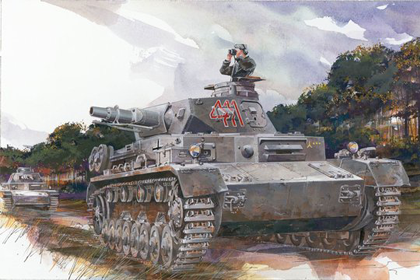
This is the Italeri 0286 kit in 1/35 scale, of the ‘German Panzerkampfwagen VI, Tiger Ausf. E’.
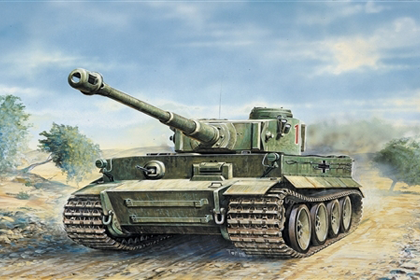
The Tiger crews were continuously engaged in maintenance work, which was aggravated through extreme conditions in the African desert and the Russian Plains.
This is the Dragon 6495 kit in 1/35 scale, of the ‘German Ferdinand, Kursk 1943’.
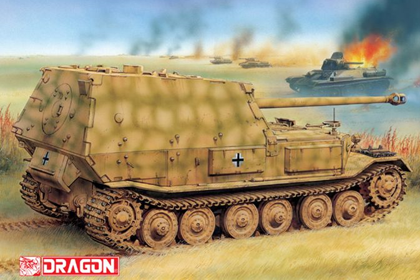
Elefant (German for “elephant”) was a Schwerer Panzerjäger (“heavy tank destroyer”) of the German Wehrmacht used in small numbers in World War II. It was built in 1943 under the name Ferdinand, after its designer Ferdinand Porsche.
In 1944, after modification of the existing vehicles, they were renamed Elefant. The official German designation was Panzerjäger Tiger (P) and the ordnance inventory designation was Sd.Kfz.184.
This is the Dragon 6684 kit in 1/35 scale, of the ‘German RSO/03 w/5cm PaK 38’.
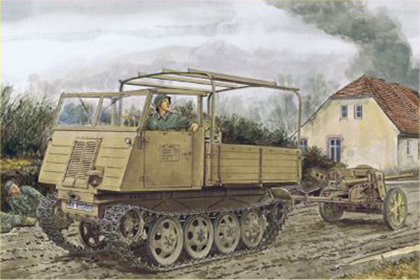
The Eastern Front presented many difficulties during WWII, one of which was the harsh weather. With few well-paved roads available, rain and snow could render the terrain almost impassable, as Germany found out during their first winter in 1941-42.
For such difficult conditions, Germany realized it needed special tracked vehicles to traverse Russia’s roads and countryside. One solution offered up was the Raupenschlepper Ost (literally “Caterpillar Tractor East”, or “RSO” for short). The RSO, based on the Steyr 1500A light truck, was initially conceived as a prime mover and tractor for towing artillery pieces, although it was eventually put to many uses.
The fully tracked vehicle performed very well in the muddy conditions, and various manufacturers eventually produced 23,000 vehicles before the war ended. The RSO/03 was a later-production variant that had a simple metal cab with a soft-top roof. It was powered to a top speed of 30km/h by a Deutz diesel engine. A pintle was fitted at the rear for towing artillery pieces.
This is the Academy 13239 kit in 1/35 scale, of the ‘German Panzerkampfwagen VI, Tiger I – Early version’.
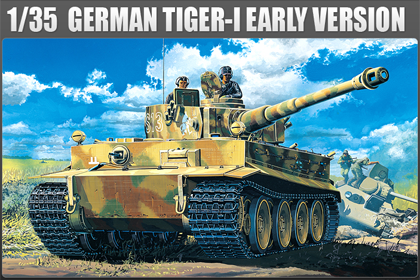
The Tiger I design gave the Wehrmacht its first tank mounting the 88mm gun, in its initial armored fighting vehicle-dedicated version, which in its FlaK version had previously demonstrated its effectiveness against both air and ground targets.
During the course of the war, the Tiger I saw combat on all German battlefronts. It was usually deployed in independent tank battalions, which proved to be quite formidable.